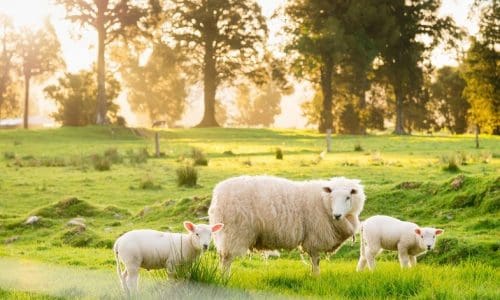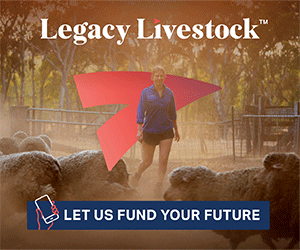
A LARGE-SCALE study of Australian farms has found strong links between opportunities to enhance capital and profitability through agriculture.
Phase two of the Farming for the Future research program has collected financial, ecological and social data from 130 Australian grazing and cropping enterprises, the preliminary results of which were unveiled today at the National Farmers’ Federation & Farming for the Future Natural Capital Summit in Canberra.
Farming for the Future is a research organisation initiated by the MacDoch foundation, a philanthropic organisation run by agricultural investor Alasdair Macleod.
The company’s program director Dr Sue Ogilvy said the initial research findings demonstrate that it is possible to establish and quantify the relationship between a farm’s natural capital, and its productivity and profitability.
 “This is the prototype phase of our program, but already we have evidence that shows there is great potential to be realised by being able to quantify the value of investing in a farm’s natural capital,” Dr Ogilvy said.
“This is the prototype phase of our program, but already we have evidence that shows there is great potential to be realised by being able to quantify the value of investing in a farm’s natural capital,” Dr Ogilvy said.
“The methods developed for the project will help to provide a baseline for both emissions and natural capital condition and value in productive landscapes, and support policy and private investment to realise a more financially prosperous, climate-resilient, and environmentally positive agriculture sector in Australia.
“Importantly, our analysis has identified the real possibility of an ‘opportunity zone’ where investment in the ecological condition of a farm is associated with financial benefits.”
Preliminary results from Farming for the Future Phase 2 research indicate that:
- High levels of farm productivity are possible from both intensive livestock enterprises (with low natural capital) and those with higher of natural capital. But high natural capital farms are more profitable in financial terms.
- There are different ‘benefit pathways’ through which natural capital can support farm businesses, including via improving productivity, and/or by reducing input costs.
- Most of the relationships between natural capital and farm business performance that we observed were positive and linear. This means that most farms in our sample, and similar farms within the broader farming population, could improve their business outcomes by improving their natural capital.
- Our landholder surveys show that the potential for private financial benefits is the most compelling reason for farmers to invest in natural capital improvements.
- Delivering insights into natural capital-farm business relationships across a broader range of focus regions and enterprise types would help to drive large-scale industry adoption of improved natural capital management (+38% of farms beyond forecast baseline levels).
Results of analysis show that the relationship between natural capital and farm business performance is, for the most part, a positive one with clear evidence of the ‘opportunity zone’ for all farm metrics tested.
“As natural capital improves, so too can farm performance. It is possible that there is some trade off point at very high levels of natural capital, but our research has found that most farms haven’t reached a trade-off point so there is still scope to realise productivity and profitability benefits from further investment in natural capital.
The Farming for the Future research team is supported by a multidisciplinary network of farm advisors, natural resource management (NRM) experts, and scientists to conduct the program of research, analysis, and systems change activation.
“Importantly, we have been able to tease out individual natural capital measurement indices that can be directly related to farm management actions.
“By working hand-in-hand with farmers and their advisors during the research to understand what information would be useful, we can start to develop the tools and benchmarks to inform decisions about investment in a farm’s natural capital and the opportunity for improved financial performance,” Dr Ogilvy said.
You can’t manage what you can’t measure
Funding for the first phases has been secured from a broad network of supporters, including philanthropists, government, banks, and industry bodies including Meat & Livestock Australia, and Australian Wool Innovation.

NFF CEO Tony Mahar
At the joint Farming for the Future and National Farmers’ Federation event in Canberra today, NFF chief executive officer Tony Mahar spoke about the opportunity for Australian agriculture to employ initiatives that build farm-level information to deliver returns to farmers and rewards them for compiling that information.
“One of the key premises for practice change with respect to natural capital is that you can’t manage what you can’t measure, and you won’t invest in what you don’t value,” Mr Mahar said.
“There is already an extensive knowledge base and capability amongst farmers but there is not currently a comprehensive and consistent set of natural capital measures to support widespread adoption of natural capital measurement across Australia.
“By empowering farmers to invest in natural capital for climate resilience, and providing the tools to support how farmers interact with markets, supply chains, banks and governments, farmers will be better equipped to make decisions about natural capital.”
Future research will be expanded to include a diversity of farming businesses across Australia with the intent of revealing the value of natural capital to agriculture by quantifying the private benefits to farmers that accrue when they manage natural capital in a way that also delivers environmental outcomes that are in the public good.
Source: NFF and Farming for the Future

HAVE YOUR SAY